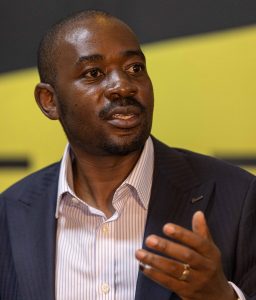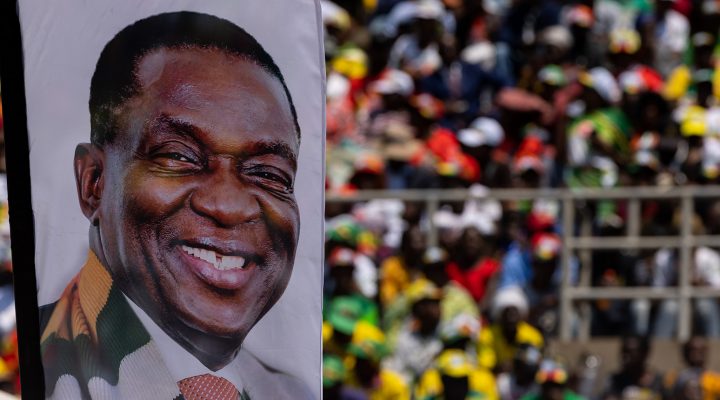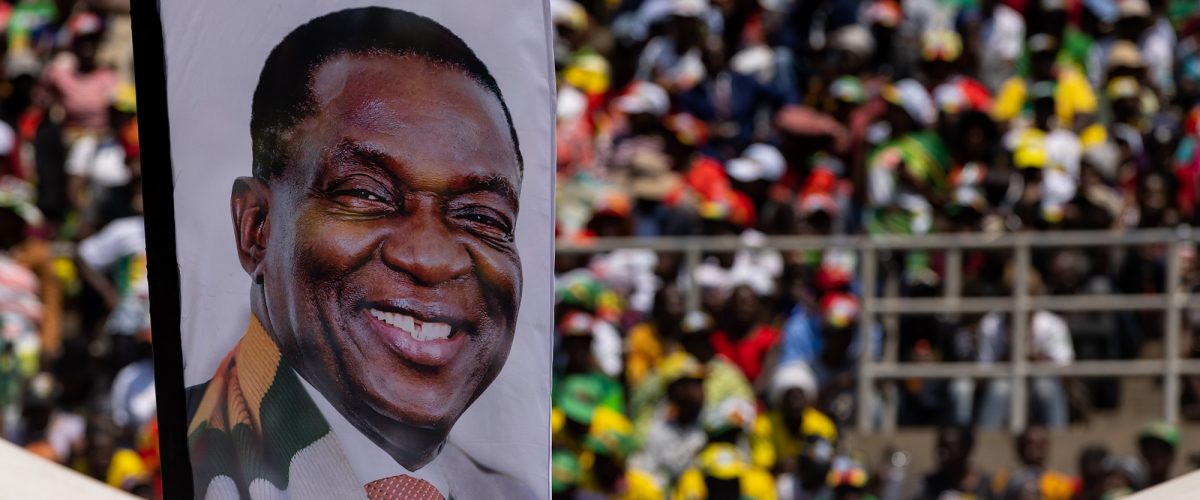On Aug. 24, Zimbabwe held presidential elections where the military-supported governing party, which has governed for 43 years, won again, dubiously against a 45-year-old pastor.
The bitter aftertaste of the election, which the United States government condemned as a “sham,” has left Zimbabwe’s citizens at home and abroad deeply questioning if the church in Zimbabwe is complicit with corrupt rulers in plundering its immense natural resources.

Zimbabwe’s opposition leader for Citizens Coalition for Change Nelson Chamisa (Photo by Tafadzwa Ufumeli/Getty Images)
President Emmerson Mnangagwa, who famously ousted Robert Mugabe, the late 95-year-old dictator, in a coup in 2017, has been re-elected as president again. Mnangagwa, now 80, beat Nelson Chamisa, a popular opponent who is a 45-year-old Pentecostal pastor. The margin of votes was suspiciously thin. Authorities say the president got 2,350,111 votes versus his rival’s 1,967,343.
ZANUPF, Mnangagwa’s party, has ruled Zimbabwe for 43 years uninterrupted. The election results were questioned by the U.S. government, the Carter Center and various other observer missions. Critics point out the results were announced at midnight, independent elections observers were arrested while auditing the votes, no voter rolls were given to opponents ahead of time, the opposition was banned from taxpayer-owned TV stations, results were allegedly doctored, and torture and repression are still ongoing, causing some refugees to flee to the U.S., South Africa and elsewhere.
Over the last 43 years Zimbabwe’s violent elections have fractured relations between denominations, pastors and families who worship in the same churches — sometimes fracturing relationships between pastors and their flocks or pitting pastor against pastor. This year, virulent divisions came to a head when some Pentecostal pastors and so-called “prophets” publicly pledged support to Zimbabwe’s sitting president allegedly in exchange for receiving spoils of gold, public land and protection.
Almost all the country’s Africanist Pentecostal churches publicly endorsed the president’s party. Prophet Uerbet Angel, one of Zimbabwe’s best-known Pentecostal clerics and a diplomat for the president, was featured in a shocking international TV documentary as allegedly participating in transnational gold smuggling and being a gatekeeper who demands money for access to the president. Angel denies such acts and dismisses such accusations as a smear campaign.
Others aren’t so sure.
“After the outcome of this rigged election, I can’t look at my pastor and return to his church,” said Floyd Savo, a 25-year-old jobless electrician who was hoping for change in Zimbabwe. His evangelical pastor endorsed Zimbabwe’s president in exchange for reportedly getting housing land deals under the table.
“A man of God can’t support a corrupt military government,” added Savo, who like millions of other young Zimbabweans was expecting Nelson Chamisa to emerge the victor.
“My father is an evangelist, and his church supports the ruling party. I want to emigrate and seek a livelihood in the U.S. We can’t stay together; I want to leave this country. I don’t want to worship in my father’s church anymore,’ said Bigboy Majoko, 27, a qualified but jobless history teacher.
“It’s a Berlin Wall — corruption and bad governance is spilling over and causing tensions in churches and families. Church congregants no longer talk to each other,” he added.
ZANUPF, the military-supported governing party, has a daring history of engineering splits in churches to maintain its hold on power. For example, critics accuse ZANUPF of infiltrating the Anglican Church in Zimbabwe when the Church of England took a hardline condemnation of Zimbabwe’s descent into corruption.
In 2008, Anglican Bishop Nolbert Kunonga, allegedly bankrolled by Zimbabwe’s government, oversaw a violent split in the Anglican community and formed his own church, which he termed the Anglican Church of the Province of Zimbabwe. In 2007, Zimbabwe’s state spies electronically surveilled Pious Ncube, the country’s Catholic archbishop, and later publicly revealed a video that appears to show the archbishop in a compromising position with an alleged “secret lover.” Ncube had risen to fame as the most daring critic of Zimbabwe’s late dictator, Robert Mugabe.
“Zimbabwe’s military regime has achieved two things with regards to the church: Church capture of greedy clerics into spoils of wealth, and crushing dissident clerics,” said Reward Godzi, a Zimbabwe Baptist ex-pastor exiled in New Jersey.
Meanwhile, pastors and churchgoers in Zimbabwe often live in poverty, causing some pastors to leave the country in search of secular work elsewhere.
“We can’t dance in front of the pulpit and hide our poverty. I don’t feel bad for leaving my congregation,” said Tinaye Tangwena, 45, a former evangelical pastor who served congregations for 15 years in Zimbabwe. He now lives in Watford, England, 7,600 miles away from his home in Zimbabwe.


